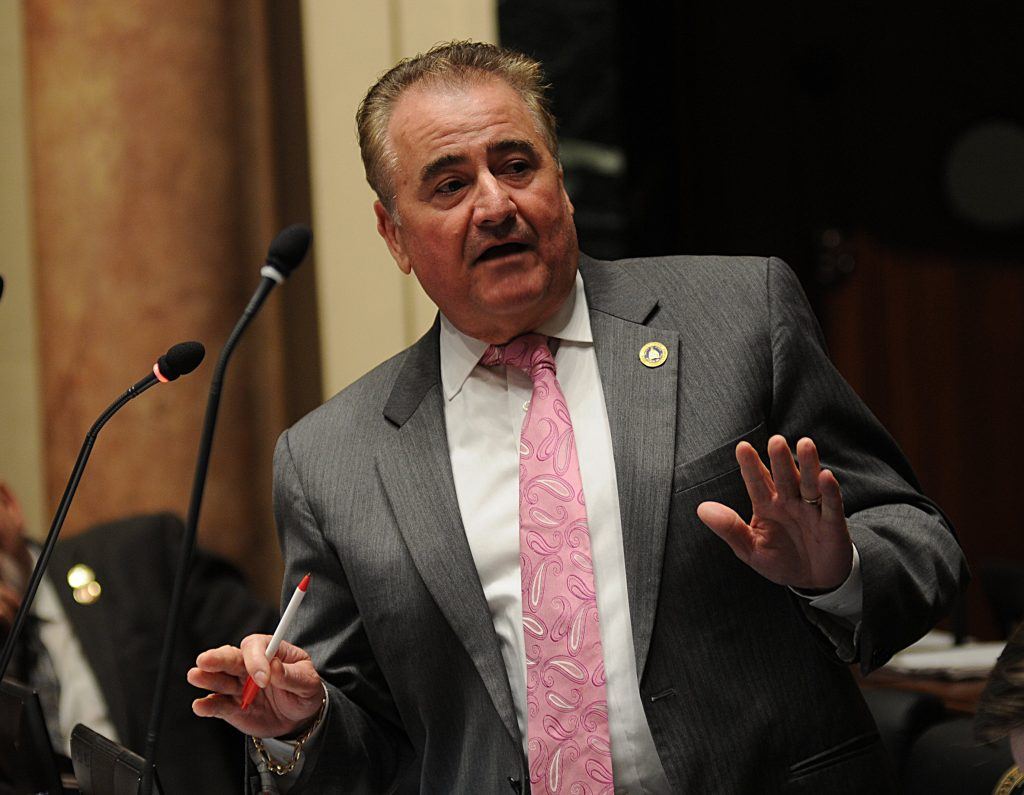Kentucky Lawmakers Turn to Casinos to Fix $33 Billion Pension Shortfall Crisis
Posted on: September 19, 2017, 10:30h.
Last updated on: September 19, 2017, 10:35h.
Kentucky is facing a pension deficit of alarming proportions. By the latest conservative estimates, the Bluegrass State is some $33 billion short of the funds it needs to pay retired public employees over the next 30 years. And now, two State House Democrats believe that casino expansion should be at least a part of the solution to that shortfall.

On Monday, representatives Dennis Keene (D-Wilder) and Rick Rand (D-Bedford) pre-filed Bill Request 149, legislation that proposes the legalization of casino gaming via a constitutional amendment, to be decided by public referendum.
If successful, the bill would authorize up to 10 facilities across the state, which, once up and running, would generate as much as $500 million in taxes every two years, according to the two lawmakers.
Betting on Casinos
In a joint statement on Monday, Keene and Rand said that it would at least be a “step in the right direction” towards addressing the pension deficiency.
“Casinos are already located along all of Kentucky’s borders and those states are reaping the benefits of additional tax revenues,” said Keene and Rand in a statement. “Kentucky’s lottery gambling is highly successful and by expanding existing gaming venues to allow for casino-type games, we will grow a new revenue source to help us catch up on the pension shortfall.”
“Based upon actuarial assumptions, and looking at revenue generated from our neighboring states, this could be a windfall for Kentucky,” added Rand. “Initial license fees for casinos would generate one-time $325 million in fees followed by $236 million annually.”
Despite being a center of thoroughbred racing, gambling overall is sparse in the Kentucky, beyond parimutuel betting at its well-known racetracks, and the state lottery. The new bill would allow its seven racetracks, as well as new operators, to apply for limited casino licensing, provided their operations have been approved by host communities.
The casinos would be overseen by an expanded Kentucky Lottery Board and operators would pay a gaming tax of 31 percent, which would wholly benefit state retirement programs for the first decade. Casino patrons would be required to pay an entry fee of $3 per day.
Governor Opposed
The two lawmakers may have a tough time gaining support in a largely gambling-resistant legislature, however, which earlier this year shot down a bill that would have regulated daily fantasy sports.
When pressed on the issue by a local radio station of expanding gaming to help ease the crisis , Kentucky Governor Matt Bevin proclaimed that it wasn’t “going to happen while I’m governor.”
Keene and Rand hope they can convince Bevin, and their colleagues in the legislature, to think again.
“Before we look at a plan that involves cuts to retirees’ benefits, we have opportunities to bring new revenue that will be designated to the pension fund,” said Keene in an issued press release.
“Do voters want to allow the new revenue from expanding gaming to build the pension fund or would they rather have cuts made on the backs of the state’s over 100,000 retirees?” asked Rand. “It’s time to put the gaming issue on the ballot so the public can have their say on this issue.”
Last Comments ( 5 )
It’s ridiculous as a Republican that my party can’t see the benefits for other states by us not allowing it. Let’s generate the money for our state, people, and public workers. I will Vote against anyone that does not support this. Those that want to gamble will gamble. Why not let them stay here to do it.
Well if they would keep there sticky fingers off of the money this would not be a problem.
Put it on the ballot and let the people decide. Same with medical marijuana. Ky is a poor state and if our elected officials won't help, let the people do it.
The political experts have kicked gaming down the road for the last 20 years. It's time KY legislators get the courage to pass a casino Bill so it can be voted on.
Ppl of Ky.are spending their money in casinos in other states.Why not keep the money in Ky that they are spending.It should be put to a vote so the ppl of ky can decide.Just like legalizeing Marijuana should be for medical use.